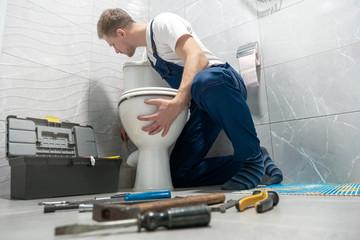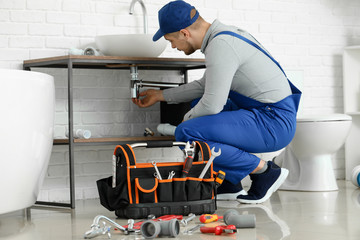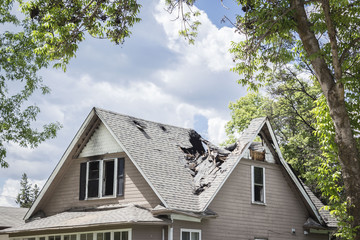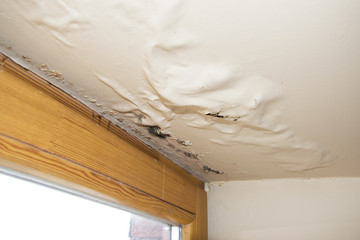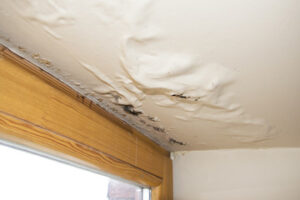Plumbers Arvada CO are essential in ensuring that water and drainage systems function properly. Their work extends far beyond fixing leaks and unclogging drains. Plumbers are now involved in complex installations and system maintenance. Their expertise supports the smooth operation of modern infrastructure.
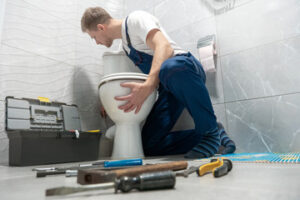
The role of a plumber has expanded with technological advancements. Modern plumbing systems now include automated water controls and leak detection devices. Plumbers need to understand how to install and maintain these systems. Their ability to work with new technology reflects the evolving nature of the profession.
Plumbers are responsible for designing and installing plumbing systems in new constructions. They work with architects and engineers to ensure proper water flow and drainage. Careful planning prevents future plumbing issues. Their input is essential to the structural integrity of any building.
Maintenance is a key part of a plumber’s job. Regular inspections prevent costly repairs and system failures. Plumbers identify potential issues before they become major problems. Their proactive approach saves time and money for property owners.
Emergency plumbing services are crucial during unexpected breakdowns. Burst pipes, sewage backups, and water leaks require immediate attention. Plumbers respond quickly to prevent property damage. Their ability to remain calm under pressure is essential in these situations.
Water efficiency has become a priority in modern plumbing. Plumbers install low-flow fixtures and water-saving devices to reduce consumption. These installations lower utility costs and support environmental conservation. Plumbers play a significant role in promoting sustainable practices.
Heating and cooling systems also rely on plumbing expertise. Boilers, radiators, and heat exchangers require proper installation and maintenance. A malfunction can affect comfort and increase energy costs. Plumbers ensure that these systems operate efficiently.
Plumbers work with various pipe materials, including copper, PVC, and stainless steel. Each material has specific advantages and installation requirements. Choosing the right material ensures the longevity of the plumbing system. Plumbers’ knowledge of materials enhances the system’s durability and performance.
Gas plumbing requires specialized skills and training. Plumbers install and maintain gas lines for heating and cooking. Safety is critical when handling gas systems. Proper installation and regular inspections prevent leaks and hazards.
Rainwater harvesting systems have become popular for reducing water consumption. Plumbers design and install systems that collect and store rainwater. This water can be used for irrigation, flushing, and other non-potable purposes. Efficient rainwater systems reduce strain on municipal water supplies.
Plumbers also handle wastewater management. Proper disposal and treatment of wastewater prevent environmental contamination. Plumbers install and maintain sewer lines and drainage systems. Their work protects public health and maintains sanitary conditions.
Water filtration systems have gained importance in ensuring clean drinking water. Plumbers install and service these systems to remove impurities and contaminants. Proper maintenance ensures consistent water quality. Their work supports health and safety in residential and commercial properties.
Fire protection systems rely on proper plumbing connections. Sprinkler systems require consistent water pressure and functional pipe networks. Plumbers install and test these systems to ensure reliability. Their expertise enhances fire safety in buildings.
Greywater recycling systems allow properties to reuse wastewater for non-potable purposes. Plumbers design and install systems that filter and distribute greywater. These systems reduce water waste and lower utility costs. Plumbers’ ability to work with recycling systems reflects their versatility.
Smart home technology has introduced new challenges and opportunities for plumbers. Leak detection sensors, smart faucets, and automated shut-off valves require expert installation. Plumbers ensure that these systems integrate with existing infrastructure. Their work improves convenience and efficiency for homeowners.
Commercial plumbing systems are more complex than residential ones. High water demand and large drainage networks require specialized designs. Plumbers handle large-scale installations and maintenance. Their expertise supports the smooth operation of commercial properties.
Healthcare facilities depend on reliable plumbing systems for hygiene and patient care. Clean water and proper waste disposal are critical in medical settings. Plumbers install and maintain systems that meet health regulations. Their work supports the safety and comfort of patients and staff.
Industrial plumbing involves working with high-pressure systems and hazardous materials. Manufacturing plants and processing facilities require specialized plumbing infrastructure. Plumbers ensure that these systems meet safety standards. Their work supports efficient industrial operations.
Plumbers must stay updated on changes in building codes and safety regulations. Compliance with these standards ensures the safety and reliability of plumbing systems. Plumbers undergo continuous training to keep up with industry changes. Their knowledge of regulations reflects their professionalism.
Renewable energy systems have increased the demand for specialized plumbing. Solar water heaters and geothermal systems require proper pipe connections. Plumbers install and maintain these systems for maximum efficiency. Their work supports the transition to sustainable energy sources.
Plumbers face physical and mental challenges in their work. Tight spaces, heavy lifting, and problem-solving are part of the job. Strength and adaptability are essential traits for success. Their ability to handle challenging conditions reflects their expertise.
Artificial intelligence and automation are shaping the future of plumbing. Predictive maintenance systems identify issues before they become serious. Plumbers install and monitor these systems to prevent failures. Their ability to work with modern technology enhances service quality.
Plumbers play a key role in disaster recovery. Floods, earthquakes, and storms can damage plumbing infrastructure. Plumbers help restore water and sewage systems after natural disasters. Their work supports community recovery and public health.
Communication is a valuable skill for plumbers. Explaining problems and solutions to clients requires clarity and patience. Good communication builds trust and improves customer satisfaction. Plumbers’ ability to interact with clients reflects their professionalism.
New materials and techniques have improved the durability of plumbing systems. Corrosion-resistant pipes, flexible tubing, and advanced fittings increase system lifespan. Plumbers who stay informed about these materials provide better service. Their expertise ensures reliable plumbing systems.
Apprenticeship programs are essential for developing skilled plumbers. Hands-on training under experienced professionals provides practical knowledge. Apprenticeships prepare future plumbers for licensing and independent work. Strong training programs ensure a steady supply of qualified professionals.
Public water infrastructure requires ongoing maintenance and repair. Plumbers work with municipal agencies to maintain water mains and sewer lines. Preventative maintenance reduces the risk of large-scale failures. Their work ensures that communities have reliable access to water and sanitation.
Cross-connection control is critical for preventing water contamination. Backflow prevention devices protect drinking water supplies. Plumbers install and maintain these devices to ensure water safety. Their work supports public health and compliance with water quality standards.
Plumbers handle a wide range of residential services. Fixing leaks, installing fixtures, and maintaining water pressure are everyday tasks. Their ability to solve common issues efficiently benefits homeowners. Reliable plumbing service improves comfort and convenience.
Plumbing innovations continue to improve system performance and sustainability. Water-efficient fixtures, smart controls, and advanced filtration systems are becoming standard. Plumbers who understand these innovations provide enhanced service. Their work reflects the evolving demands of modern infrastructure.
Plumbers often work in harsh and unpredictable environments. Cold weather, heavy rain, and tight spaces create physical challenges. Adaptability and problem-solving skills are essential in these situations. Plumbers’ resilience enhances their ability to complete complex jobs.
Career advancement opportunities exist for experienced plumbers. Supervisory roles, project management, and specialized fields offer new challenges. Skilled plumbers with strong technical knowledge and leadership skills excel in these roles. Their career growth reflects the importance of plumbing in modern society.
Plumbers are vital to the construction, maintenance, and operation of infrastructure. Their expertise ensures that water and drainage systems function efficiently. Skilled plumbers combine technical knowledge with adaptability and problem-solving. Their contributions support health, safety, and comfort in modern living.

